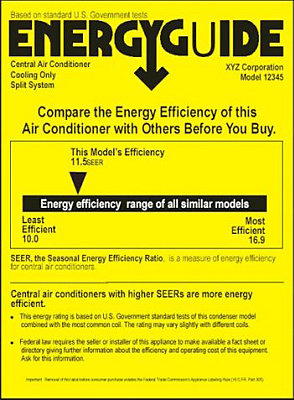Heating and Cooling Terms Every Homeowner Should Know

September 16, 2011
Being a homeowner means you sometimes have to make decisions about things you’re not so familiar with. When it comes to your home, understanding the heating, ventilation, and air conditioning (HVAC) system can be overwhelming.
To help you make more educated choices about the products you choose for your home, we’ve outlined some terms we feel every Sarasota homeowner should understand.
HVAC Terms You Should Know
SEER,
or the seasonal energy efficiency ratio, is used to rate the efficiency of air conditioners and heat pumps on a seasonal basis. The higher the SEER, the more efficiently the unit will run. Today, all air conditioners or heat pumps sold in the United States must meet a minimum SEER rating of at least 13.
AFUE,
or annual fuel utilization efficiency, determines the efficiency of a furnace by measuring how well a fuel source is used by the unit. Any new furnace installed today must have an AFUE rating of at least 80. The higher the AFUE, the more efficiently the unit will run. For example, a furnace with an AFUE rating of 90 means it will use 90 percent of the total fuel burned to heat the home. The remaining 10 percent is lost.
MERV,
or the minimum efficiency reporting value, is used to rate the efficiency of air filters. The higher the MERV rating, the more particles the filter will successfully capture. The scale is established using captured particles measuring between less than 0.3 micrometers and greater than 10 micrometers.
The higher the rating you opt for in each particular unit can result in lower energy costs, but the unit will cost more up front than a less expensive unit with a lower rating. Selecting the right efficiency rating for your home will depend on the amount of money you wish to spend on a new unit, the time you plan to run the unit and the energy savings you hope to achieve with the purchase of a new system.
What many homeowners, don't know about efficiency ratings can end up increasing utility bills and wasting energy. Do you have questions about the efficiency ratings of your heating or cooling unit? Are you looking to upgrade? Consult with one of our experts online or schedule a free estimate today.
Posted in: Tips